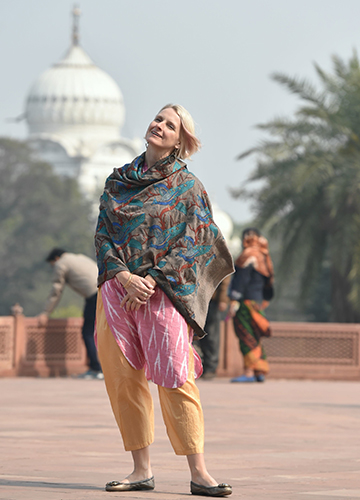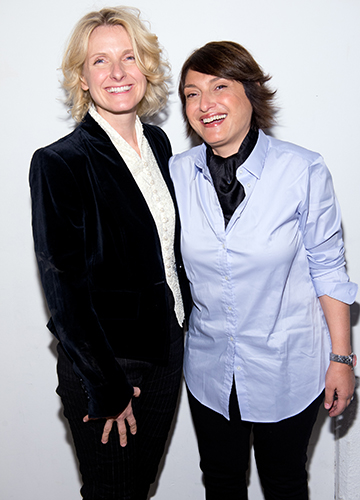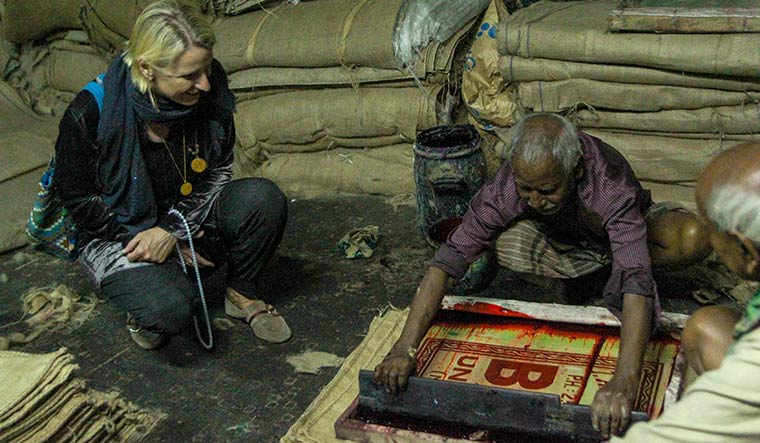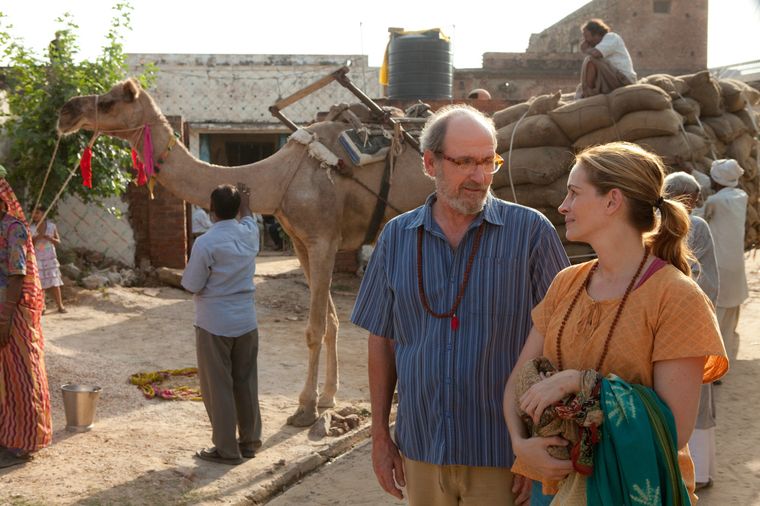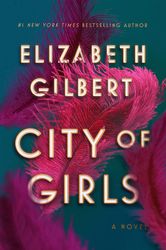That day in November 2016 when Donald Trump was elected the 45th president of the US was a beautiful one. At least that is what American author Elizabeth Gilbert and her partner Rayya Elias had initially thought.
A couple of months ago, Gilbert, in a Facebook post titled ‘Me & Rayya’, had publicly declared her feelings for her Syrian best-friend. Their relationship had ended Gilbert’s marriage to businessman José Nunes, who was the ‘Love’ in her 2006 best-selling memoir Eat, Pray, Love. Elias had been undergoing treatment for pancreatic and liver cancer; by November 2016, she had given up chemotherapy. Gilbert’s love for another woman had become a talking point, but her feelings for her dear friend who was terminally ill with cancer was real. “I am exactly where I need to be—the only place I can be,” Gilbert had written then.
But on that election day in New York, everyone who was hoping that America would have its first female president was happy and excited. Gilbert and Elias went to vote, had lunch, and came home giddy with anticipation. It was only in the night, while watching the results on TV, that the atmosphere changed. There was astonishment and disbelief as Trump’s victory became imminent. Gilbert switched off the TV and took her partner out for a walk. When they came back, the couple lit some candles and prayed. Suddenly, Elias stood up in the middle of the bedroom, shook her fist at the sky, and angrily took God to task. “F***ing seriously?” Elias raged. “First you give me cancer and now this? Really, this is your plan? I’m gonna die while Donald Trump is the president?”
And then she did something completely unexpected. “You want to dance?” she asked Gilbert. “Let’s dance”. Holding out against the inevitable, Elias triumphantly declared: “You watch me dance. I will have the best last days of my life. I will not let any of this take away my joy.”
She died on January 4, 2018.
“You know, that is kind of what I inherited from her,” says Gilbert, 50. “This dance is still on.” She recounts this tender episode in between mouthfuls of naan, okra and kaali dal at the Taj Palace hotel in Delhi. After writing a gustatory ode to Italian food in Eat, Pray, Love, Gilbert is now certain that Indian food is the one “world cuisine” she can have for the rest of her life. Dressed in a light pink kurti and a mellow mustard pyjama, her straightened bob touched up with subtle pink highlights, Gilbert is easy-breezy, quick and fluid even as she darts and flutters over matters serious and solemn. We meet on the bright, sunny afternoon of the Delhi assembly elections, and the conversation invariably veers towards American elections and white privilege, women leading protests across India and their political awakening, authoritarianism and the rise of the radical right.
Gilbert—in a career spanning more than 30 years—has written, with flamboyance and verve, about sexual freedom and self-actualisation, the perils of matrimony, loving and leaving, and tapping into one’s creative genius. Her short stories, magazine articles, confessional essays and novels have never really been overtly political. She has written stories about cowboys, strippers and magicians; about American manhood and promiscuous women in 1940s New York; about her addiction to the art of seduction; and about a debilitating divorce. But just like how her whip-smart prose exhorts you to grow up and scale down expectations from relationships, she warns of alarmist reactions in politically frightening times. “For most of history, people have lived under injustice. We are just not used to it... we have never seen anything like it because we have been lucky enough to live for generations in basically a functional democracy, which may or may not last,” she says. “This is the first time we have been affected where we are like, oh, that does not seem fair.”
As a citizen, Gilbert participates in marches and does her share of activism, but she knows that neither Donald Trump nor any other narcissistic leader can take away her hard-earned serenity or her art. Gilbert is ruthless about continuing to dance, come what may. As she says, “In the middle of the Trump administration, I will write the most frivolous novel about sex and cocktails if I want to, if that is what my artist’s heart says. Because that is what freedom is.”
A seduction artist cannot afford to get bored
The celebrity author was in India for the second time, after her four-month trip to the country in 2004 which led to the impossibly famous Eat, Pray, Love: One Woman’s Search for Everything Across Italy, India and Indonesia. It sold millions of copies, was translated into 30 languages, stayed on The New York Times bestseller list for 187 weeks, became a Hollywood chick-flick starring Julia Roberts, spawned travel itineraries and tea-candles-jewellery merchandise, and was thoroughly Oprah Winfrey-approved. The runaway success of the book made her a novelist with a net worth of $25 million in her heyday, not to mention the coveted inclusion in TIME magazine’s 100 most influential people in 2010.
It is easy to see why the “travel-spiritual-memoir” resonated with countless women struggling with a crushing sense of alienation despite having it all. In Gilbert’s case, this included an exciting job, a great husband and a fabulous apartment in New York. The memoir chronicled how Gilbert, then 34, undertook a year-long journey of self-discovery across three continents after a brutal divorce, a volatile rebound romance and a severe spell of depression. It became one of those zietgeisty books creating a brave new heroine for the decade, even as a few critics denounced it as low-brow “chick lit” from a privileged, white lady with a book deal.
But she isn’t just a one-hit wonder. Few care for Gilbert’s incessant productivity, her fiercely disciplined lifestyle and how she has not let the success of Eat, Pray, Love determine her writing trajectory. She recalls her restless 18-year-old self who chose to study political science at New York University after a middle-class upbringing in a small Christmas tree farm in Connecticut. “I came from such a small town and a sheltered life. And I was so bored. I wanted to know [more] about the world. I was interested in international relations. [Like] what was happening in Nicaragua in the Iran-Contra affair... [or] how the Gulf War started. I wanted to be constantly awakened, to be stimulated,” says Gilbert. She would only attend the classes of interesting professors. If they failed to catch her attention in the first few minutes, she would quit, camping at the registrar’s office to change her schedule. “It was too expensive for me to sit with a boring professor,” she says.
That same manic energy and insatiable curiosity can be seen in her personal essays written much later. “Seduction was never a casual sport for me; it was more like a heist, adrenalising and urgent. I would plan the heist for months, scouting out the target, looking for unguarded entries. Then I would break into his deepest vault, steal all his emotional currency and spend it on myself,” reads a passage from Confessions of a Seduction Addict, her 2015 essay in The New York Times.
She manages her own Facebook, Twitter and Instagram pages. Her works of fiction, especially the novels written after Eat, Pray, Love, are a dazzling display of narrative prowess where the reader is swept into splendid, rousing time capsules of love and adventure.
Her latest, City of Girls, is set in an old, raggedy playhouse in 1940s Manhattan, where leggy showgirls rule the roost, where sex and promiscuity are a way of life, and the ultimate love story is the support offered by female friendships. Vivian Morris, the central character, loves her work, the occasional male company and good sex. She does not believe in marriage, despite owning a bridal-wear shop. If a man moved into her apartment, it would be like home invasion. And she finds anchor in a close-knit circle of female friends. Much like Gilbert herself. In fact, Gilbert admits she wants to live more like Vivian.
A city of girls is a city of joy
Gilbert cannot stop gushing about Kolkata, as if it might qualify as the incandescent City of Girls in India. Although in Eat, Pray, Love, she only writes about the ashram and her guru in Maharashtra, not many know that this is her second visit to the City of Joy. “I frickin’ loved Kolkata instantly, you know,” she says. “I feel like every place has a spirit. It is just like falling in love or meeting a friend. You just know. Kolkata reminds me of New York. And of Naples and Italy. It has this big energy. There is a toughness, an engagement, a playfulness, an intelligence.... I really like it. So I wanted to come back and spend more time there.” Her Kolkata itinerary included such unconventional choices as a walking tour in Burrabazar, the commercial nerve-centre of the city. Her seven-day boat ride down the Ganges had her flitting across tiny, lesser known villages like Debagram and Bethuadahari, and through restored mansions in Murshidabad. She also took a guided tour, conducted by a three-year-old heritage walk company called Calcutta Capsule, themed around Jana Aranya (The Middleman), a 1976 Bengali film by Satyajit Ray. Ever the gourmand, Gilbert complains about the idli, sambar and khichdi in Delhi. “Why are they not as good as [the ones in] Kolkata?” she wonders.
This time, Gilbert says, her India journey is not spurred by a heartbreak. She is not in any relationship and insists she has no love story to offer. “The stories that I am attracting are of people leaving bad relationships and choosing the risk of being alone,” she says. “I am inspired and more excited by the women doing life alone, and doing really well.”
But unknowingly, she has already given away her own love story, especially when she talks about how she has taken to dancing every day. Her next book will be on grief, but for now, it is Eat, Pray and Dance. This is where she has found her serenity. She parts with a word of advice: “Take care of your serenity. It is in times like these that we need it the most.”
City of Girls
Author: Elizabeth Gilbert
Publisher: Bloomsbury
Pages: 480
Price: Rs 599


